
To see a larger image, click on the thumbnail.
Press the "back" button on your browser to return to this page.
The following paper is my Senior English thesis for the Francisan University of Steubenville, my alma mater. However, since I have written this paper (and, more importantly, since I have recovered from voluntary sleep-deprivation á la excessive amounts of caffine which were required to finish this paper), I have realised that what I had hoped was merely a 20-some-odd blow-off, actually wants to be something rather longer.
Thus, you will no doubt note that during the course of this paper, there are sections that tenatively push into another area that hopes to one day be a chapter in its own right. You will notice blatant holes in my argument, which I will blame on aforementioned sleep-deprivation. 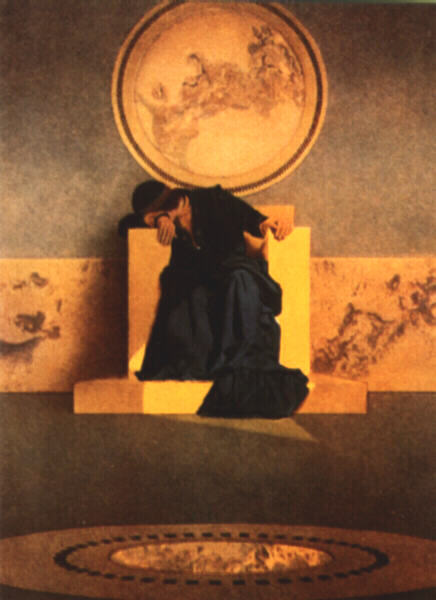 You will notice a rather inconclusive ending (which I blame on the silly deadline of graduation - yeesh!) And, if you're anything as nitpicky as I am, you will wonder, 'Why doesn't this chiqua get her act together and cover every bit of the arts since this paper is clearly determined to be something larger than 20 pages!'
You will notice a rather inconclusive ending (which I blame on the silly deadline of graduation - yeesh!) And, if you're anything as nitpicky as I am, you will wonder, 'Why doesn't this chiqua get her act together and cover every bit of the arts since this paper is clearly determined to be something larger than 20 pages!'
The answer is: I'm working on it. In the nonce, however, you will have to content yourself that someday, far far in the future, there will be a 20 VOLUME set all about "Defining the Arts" (but with a title appropriately larger and more cumbersome, including several neat-o uses of the colon and font type)...or at least a longer treatise.
In short, what you are reading is not a finished product by any stretch of the imagination, but it is more or less a sort of extended outline. When I get the chance, I'll post a second essay which attempts to deal solely with the Hierarchy of the Arts.
Because of browser constraints, the paper is divided in parts, with all appendices on their own pages. These pages are therefore always "under construction." I welcome any and all suggestions, questions and arguments concerning this paper/outline, but warn you that I check my e-mail not quite as frequently as some.
Political Fantasy is the study of politics (the force-human or divine-that moves and shapes a society) in a fabricated world. In the literary hierarchy, it exists as an unrecognized subgenre, often hiding behind the usual terms of high or traditional or speculative fantasy. But Political Fantasy, like Political Fiction of all types, is unique in the possible impact it can have on the world, for it touches the very force behind society, and thus can be a means of political change as well. Unfortunately, Political Fantasy as such does not yet formally exist. But with numerous subgenres coming into existence yearly, the advent of Political Fantasy cannot be long delayed.
In an age where words have been redefined so that the usage prescribed in a dictionary does not necessarily match what the common mind normally ascribes to that same jumble of vowels and consonants, a brief explanation of the words used here is required. (See also Glossary.) In this case, we consider "Literature," the FORM, to be divided into various STYLES, such as "Poetry," "Plays" and "Prose." The latter category is divided into two CLASSIFICATIONS, "Fiction" and "Non-fiction." These classifications are then divided into the SUPERGENRES, such as "Realistic Fiction" and "Fantastic Fiction" under the classification "Fiction." 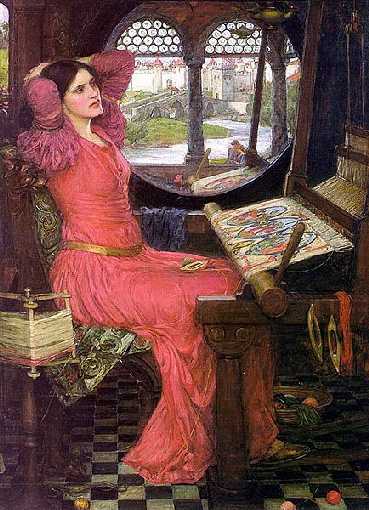 These SUPERGENRES may then divided, in the case of the latter, into "Science Fiction," "Fantasy," and any other literature that has elements of the fantastic. "Fantasy," a GENRE, is then divided into "Dark Fantasy," "High Fantasy," "Steampunk," et cetera, and other SUBGENRES, including "Political Fantasy."
These SUPERGENRES may then divided, in the case of the latter, into "Science Fiction," "Fantasy," and any other literature that has elements of the fantastic. "Fantasy," a GENRE, is then divided into "Dark Fantasy," "High Fantasy," "Steampunk," et cetera, and other SUBGENRES, including "Political Fantasy."
"Literature" pertains to books, magazines, articles, plays, short stories, poems-anything that utilizes the written word. "Prose" is the organization of the written word into paragraph form. The difference between "Fiction" and "Non-fiction" is that the former is based on something that did not happen or has not happened, and the latter is consequently based on something that has happened or is happening. So both a fiction and a non-fiction book may be set in World War II, but the first will fabricate non-existent characters, while the second will be constrained to report who actually was there. "Realistic fiction" is any fiction that takes place within the confines of this world, with little to no aberration in its present history, physics or dynamics. "Fantastic Fiction" is any fiction that takes place within the confines of another world, or in this world but with significant aberration within its history, future, physics or dynamics. The two largest Genres within Fantastic Fiction are "Science Fiction" and "Fantasy." The common words "Science Fiction" and "Fantasy" are used here in the accepted sense they have come to acquire in the commercial world. Although this paper defines these words more specifically, as well as adding in their terms to further clarify the modern hodge-podge that we call "literature," I have deemed it best to implement working terms regardless of their etymological roots.
Often mistakenly lumped together, these two genres are better explained distinctly. Fantasy is the purest form of Fantastic Fiction: the majority of the action does not take place within this world. "Magic" is not a necessity for the fantasy genre-the creation of a completely foreign world is. Therefore "Fantasy" may encompass those books previously considered to be "Science Fiction" wherein another world is created outside of the existing one, with elements of advanced scientific development. Currently, this genre is sometimes known as "Science Fantasy." As for the use of "magic:" this is merely a traditional literary device in "Fantasy," previously thought of as a necessity to "qualify" in the genre, but actually useful only as a means of differentiating another world from our own. Fantastic fiction will almost certainly include those books that incorporate "magic" or any other paranormal event, whether set in this world or another, except in those cases where the "magic" (in our world) is not a literary device (and purely fantastic and impossible), but frighteningly true. There are supernatural forces in the world, and those sources have been defined and revealed by such reliable sources as the Holy Bible. Therefore, those books that deal with spiritual phenomena may also be placed under the term "realistic fiction."
Science Fiction is another form of Fantastic Fiction in which often the majority of the action takes place in a technologically advanced age, usually in the future of this world. 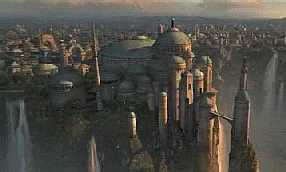 For purposes of this paper, the term "Science Fiction" will refer only to those works that remain within the confines of this world and universe but include the fantastic element of incredible scientific development. The creation of a completely different world belongs solely to "Fantasy," regardless of what technological advances are or are not explored in the work.
For purposes of this paper, the term "Science Fiction" will refer only to those works that remain within the confines of this world and universe but include the fantastic element of incredible scientific development. The creation of a completely different world belongs solely to "Fantasy," regardless of what technological advances are or are not explored in the work.
The use of the word "world" here refers to what is described in Genesis 1-2, or, in literature, any variation on what God has done (with the realization that all we "create" is due solely to what God has truly Created). A fabricated world may then be a place where the structure is changed so that all the characters live in clouds, or the water is orange, or five suns circle the planet-yet these fabrications are the rearrangements of elements found in this true world. A world, often used in parallel universe stories, that has similar dynamics to this one (trees are green, humans are prevalent, etc.) may still be considered fabricated if the sociopolitical structure is different (e.g., a world where Hitler won, a world where words have been stripped of meaning, etc.). In short, the particulars of a given world are all that differentiate "worlds" from one another. A story set in the future of this world is not considered a different world but speculative, since the basics of God's creation necessarily remain intact.
In any world, however, one crucial element must be observed in order to make the fantastic plausible: the characters must be human, or humanlike. As G.K. Chesterton wrote in Orthodoxy:
This is also why the new novels die so quickly, and why the old fairy tales endure for ever. The old fairy tale makes the hero a normal human boy; it is his adventures that are startling; they startle him because he is normal. But in the modern psychological novel the hero is abnormal; the centre is not central.1
Political Fantasy, then, is a subgenre of Fantasy, differentiated from Political Science Fiction by its being a completely different world rather than a speculation on this world. The emphasis or study of this world, though, centers not merely on the social (i.e., human) interactions, but on the form of politics (or the distribution of power) as it affects society. The emphasis on politics rather than society merely indicates a sharpening in perspective or study from the social or everyday interactions of a given world to the forces that formed those everyday interactions. Politics is the human force behind a world, so often flawed because it is human rather than divine. But, as some philosophers assert, we are political beings, and the study of that political nature should be a concern for the educated reader.
The purpose and base of Political Fantasy, as with all fantasy and with all fiction, are the ramifications of and the current trends in our present world. In Political Fantasy, however, one sees a certain sociopolitical trend in our world and, by placing it in another world (a sort of literary "vacuum" or "laboratory"), allows that trend to follow through to its extreme logical absurdity. Hence, in Last Words, the author saw the movement towards the reduction of the English Lexicon, the political power inherent in such a move, and its devastating effects. Although the society, or world, created in Last Words is by no means meant to be prophetic, indicative, or historical, it is meant to be a sort of warning "might."
More than any other genre, Fantasy has the advantage of not being tied to this world, so that such an experiment in literature will not be seen-cannot be seen-as prophetic, indicative, or historical. In excellent Political Science Fiction books such as 1984, the reader can wave away the warnings of the novel because the author's "future" has come and passed without his world coming into being. Similarly, those novels that change our world's history to achieve an alternate earth in which to set their political warning can be dismissed by their sheer impossibility-history is immutable. Fantasy, however, is "might," rather than the "should" or "could" that exists in science fiction and alternate history. Although skeptics may still doubt the influence of an impossible and non-existent literary society upon our own reading populace (since the society never happened in any actual dimension), yet fantasy is a sort of parable, a sort of rippled water, that makes us look at situations present in our world today as though they were something uncommon. Fantasy is that funhouse looking glass that makes us view ourselves from angles never before perceived.
1 Chesterton, G. K. Orthodoxy. San Francisco: Ignatius Press, (c) 1908. p. 20.


 On to Development of Political Fantasy
On to Development of Political Fantasy On to Defense of Political Fantasy
On to Defense of Political Fantasy The Christian Guide to Fantasy
The Christian Guide to FantasyPictures from:
 "The Young King of the Black Isles" by Maxfield Parrish
"The Young King of the Black Isles" by Maxfield Parrish
 "The Lady of Shalott" by John William Waterhouse
"The Lady of Shalott" by John William Waterhouse
 "Naboo Landscape" from Star Wars
"Naboo Landscape" from Star Wars
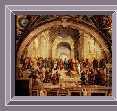 |
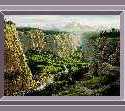 |
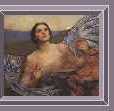 |
© 3 May, 1999
Updated 13 June, 2000
All Rights Held by the Author.
No part of this document may be used or copied without express permission of the author.